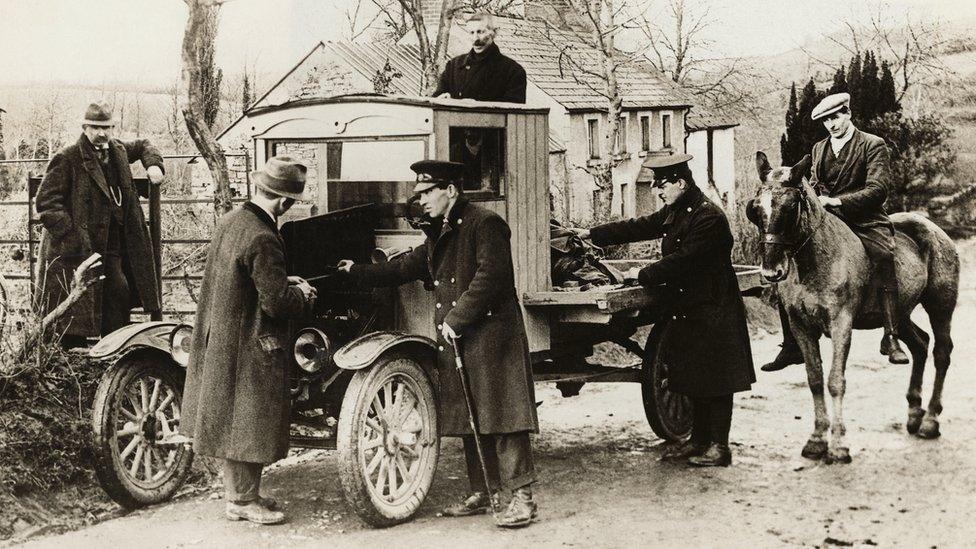BBC Newsline One Day film captures life across Northern Ireland
- Published
BBC Newsline One Day film captures life across Northern Ireland
If you had to express, capture or reflect a day in the life of Northern Ireland, what would you show?
That is the task BBC Newsline has set itself for a unique film to be broadcast during Monday's programme.
Called One Day, it charts the cadences and rhythms of Northern Ireland life - from dawn to dusk.
The film is the work of about 50 BBC staff who filmed what was going on around them on phones, cameras and drones on one day - Monday, 6 December.
The idea came from the archive pictures and stories BBC News NI has been broadcasting and publishing all year about 1921, when Northern Ireland was founded.
It made BBC Newsline staff think about how people would look back on this year, 2021, a century from now.
Daily news is often fast-moving - reporting new stories and developments that affect our lives, often barely pausing for breath
But what One Day reveals is that there is plenty about the rhythm of our lives that changes little.
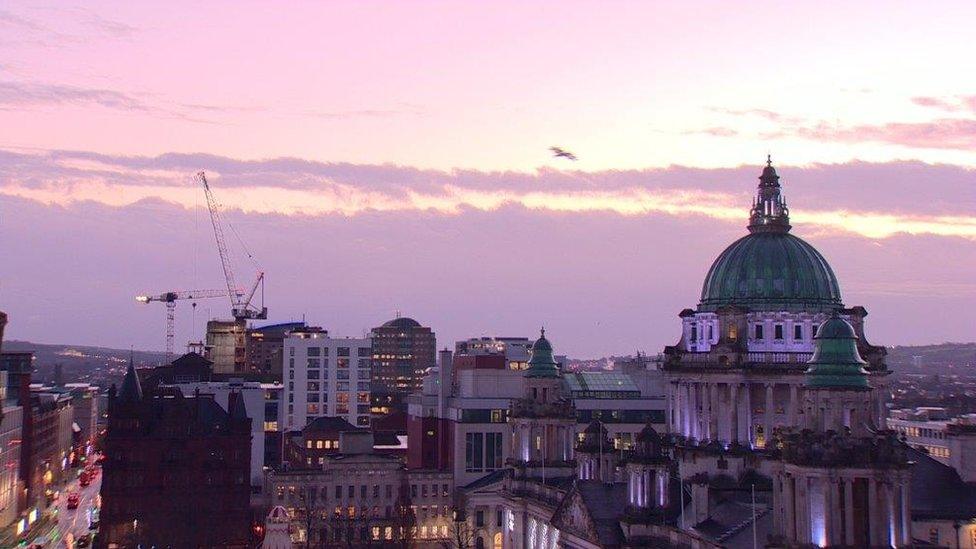
The sunrise over Belfast City Hall is one of the opening shots of the film
The film opens as the "peace gates" on the Lanark Way interface in Belfast swing open at 06:00 GMT.
While that interface was the scene of rioting earlier this year, the fact that the gates open every morning to allow people to move across west Belfast is symbolic of some of the progress Northern Ireland has made.
Later, though, BBC Newsline's cameras capture the gates swinging shut again at 22:30 - a sign of a journey yet to travel.
Lights on the cranes at the shipyards break through the dawn, while the outline of the mighty Mourne Mountains begins to become apparent over the promenade at Newcastle as the night lifts.
Drone cameras have allowed new perspectives in recent years and new meets old as we see the ancient monastic site of Nendrum in County Down from the air.
It's modern technology - but the Strangford Lough landscape has in many ways changed little from what the monks who lived there would have witnessed centuries ago.
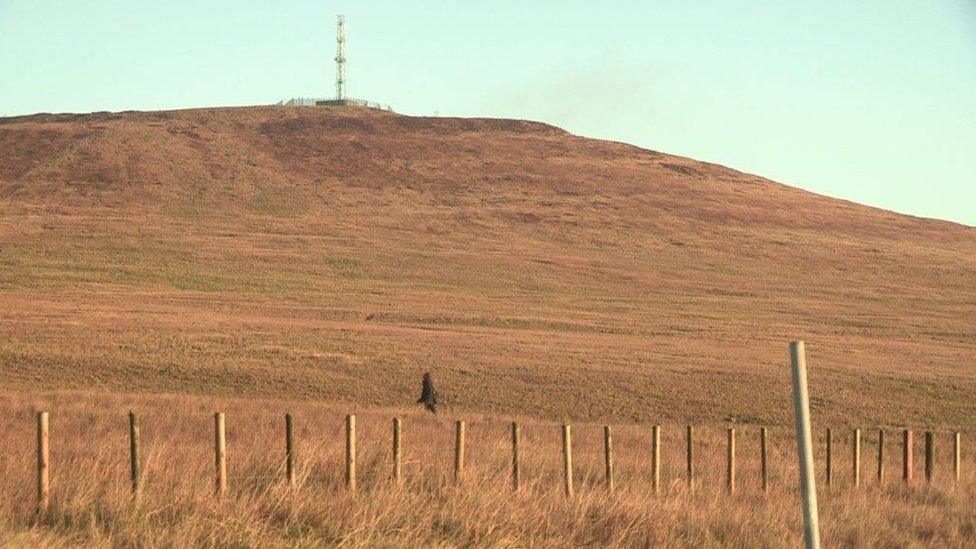
Sunshine on a winter day shows Divis Mountain in glowing colours in the One Day film
Later, stunning drone shots of the Glens of Antrim and the ferry from Portaferry to Strangford will also be part of One Day.
But much of the film shows Northern Ireland's people.
Breakfast is eaten, the morning papers are set out, the commute begins, children pour through school gates.
For some though, 6 December is life-changing - like the bride and groom celebrating their wedding or the students whose graduation day has finally arrived.
In Londonderry, the Guildhall clock is set to strike one as people hurry across a windy Peace Bridge over the River Foyle for lunch or shopping.
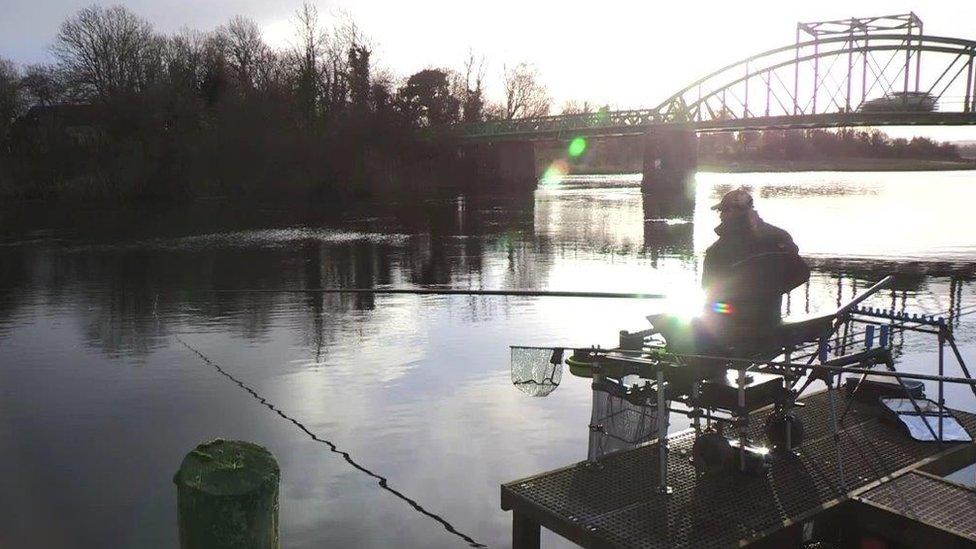
A slower pace of life is enjoyed by fisherman who wait patiently for a catch at Lough Erne
Back in Belfast, footage of two contrasting and vivid memorials.
The multiple murals on the International Wall on the Falls Road in west Belfast provide topical colour even on a winter day.
Meanwhile in east Belfast the three flat-capped Yardmen statues walk to - or is it from? - another day in the shipyards from Ballymacarrett and the Newtownards Road.
There is, of course, a nod to the extraordinary times we live in as people queue in masks to receive their Covid-19 booster vaccine.
But alongside the continuing effort to protect people against Covid, it is Christmas.
The giant musician sculptures who stand at the border between Strabane and Lifford - cheekily called "the Tinnies" by some - have been dressed as Santa and Elves.
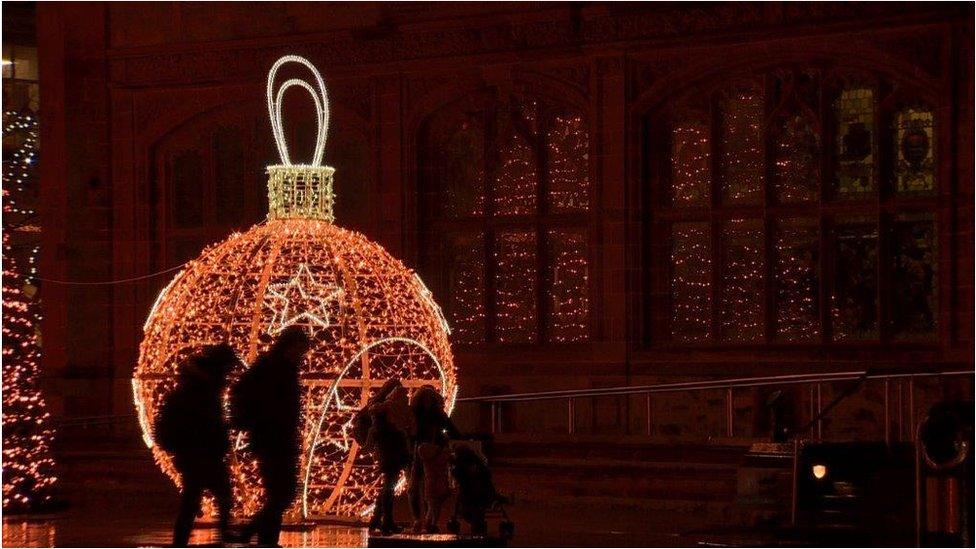
Christmas lights provide a festive backdrop to reflect the evening rush hour in Derry in the film
And as children leave school, the return commute begins and darkness falls, the vivid Christmas tree in Guildhall Square lights up the historic building.
In the evening, children and adults get active at some of the thousands of grassroots sports clubs across Northern Ireland.
Other people, though, head for the restaurants and bars to meet friends - keen to make up for some of the times that have not been possible over the past two years.
But a sleeping bag in a doorway is a reminder that, for some, there is no home to go to, no quiet rest in the night ahead.
Finally, the Lanark Way peace gates close again.
So what will our descendants 100 years from now learn about life in Northern Ireland from One Day?
Unlike many of the familiar events the film shows, that is impossible to predict.
Related topics
- Published12 September 2021
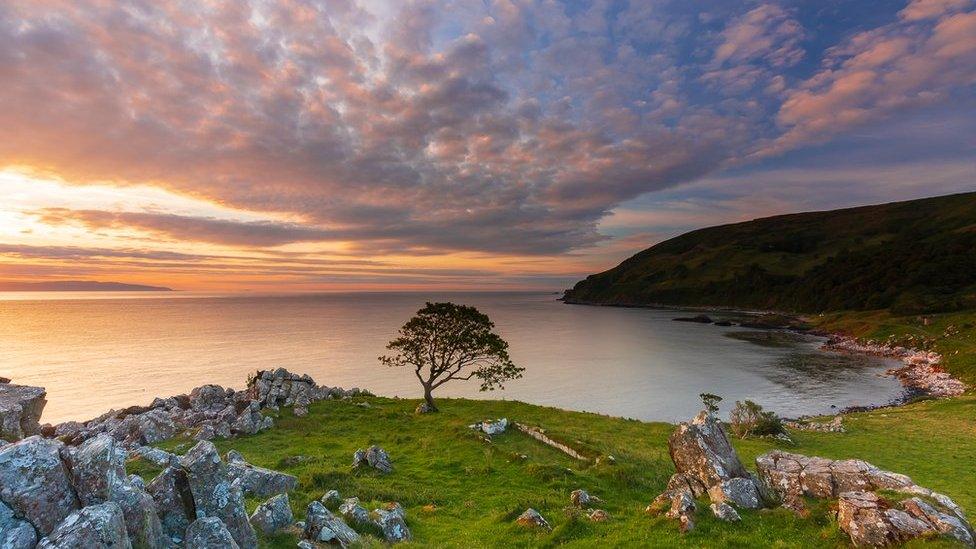
- Published3 May 2021
